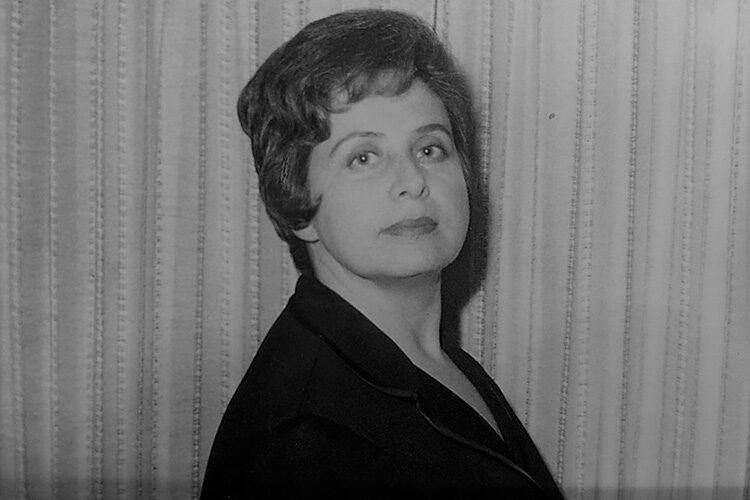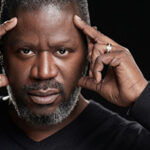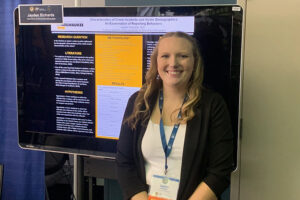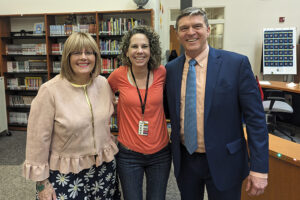When Rea Katz and her brothers were discussing a way to honor their mother, Estelle Katz, they decided to do something that would help educators.
Their efforts led to the establishment of a UWM School of Education scholarship, the Estelle Z. Katz Scholarship for Social Justice in Education, designed to help public school teachers pursue graduate work.
In some ways, Estelle Katz was very much a woman of her times, her daughter recalled. She was a wife and mother who raised four children and volunteered in her community.
At the same time, Katz led a remarkable life, working on the World War II Manhattan Project, helping soldiers with spinal cord injuries, volunteering in Civil Rights-era “Freedom Schools,” and going on to earn an education degree when she was almost finished raising her children.
“She was a fantastic woman,” said Rea Katz, an adjunct associate professor in the Rosalind Franklin University of Medicine and Science in North Chicago, Illinois.
Wanted to be a doctor
The daughter of refugees from czarist Russia who settled in Chicago, Estelle Katz was the first in her family to earn a college degree. “She wanted to be a physician, but there was no one to guide her,” said Rea Katz, and she faced challenges that kept her from reaching that goal. At that time, medical schools rarely admitted women, especially Jewish women, her daughter recalled.
So Estelle Katz decided to earn a degree in chemistry. After graduating, she worked in the World War II Manhattan Project’s Metallurgical Laboratory, located beneath the bleachers of Stagg Field at the University of Chicago, to help construct the first nuclear reactor.
After enlisting in the Women’s Army Corps, she became a surgical technician, caring for soldiers with spinal cord injuries.
She married William Katz in 1948, and they moved to Madison, where she worked in a chemistry lab researching the hormones that were eventually used to synthesize oral contraceptives.
While raising her family, she was an active volunteer in civic and social justice causes. She served as chair of the Milwaukee chapter of the ACLU and president of a statewide listeners association supporting public radio (which later became Wisconsin Public Radio.) She also volunteered with the League of Women Voters, worked on various political campaigns and for health care reform and ran for the Nicolet High School Board.
Volunteering in Freedom Schools
Her children aren’t sure why their mother decided to become a teacher in her 50s, said Rea Katz, but they think it might have been the taste of teaching she had volunteering in the Freedom Schools during the Civil Rights era.
Estelle turned to UWM to earn teaching certification through a program designed for students who had bachelor’s degrees in other areas. She decided that she wanted to teach grade school in the Milwaukee Public Schools, and did just that for more than a decade at Auer Avenue and Cass Street schools. “She always was very social justice minded; lifting people up and teaching was a way she could do that,” said Rea Katz.
After retirement, Estelle and William traveled to Europe, China and Mexico, and continued supporting and volunteering for a wide variety of social justice and cultural organizations.
“Unceasingly worked for social justice”
Her family wrote of her: “She embodied the hope of immigrant parents and the values from her Jewish heritage in order to better the world we live in as she taught her students, served her community, and unceasingly worked for social justice.”
Estelle Katz died at age 93 in 2018, eight months after her husband of 69 years.
Rea and her brothers, David and Aaron, decided a scholarship to help other public school teachers continue their education, especially around the issues of social justice and equity, would be a fitting memorial for their mother. The first scholarship, funded by the friends and family of Estelle Z. Katz, was awarded for this fall to 2019 UWM grad Alyssa Molinski.
“She was really a teacher throughout her whole life,” said Rea Katz of her mother. “That’s how she raised us. She was just curious about everything, and she wanted to help other people be curious.”







